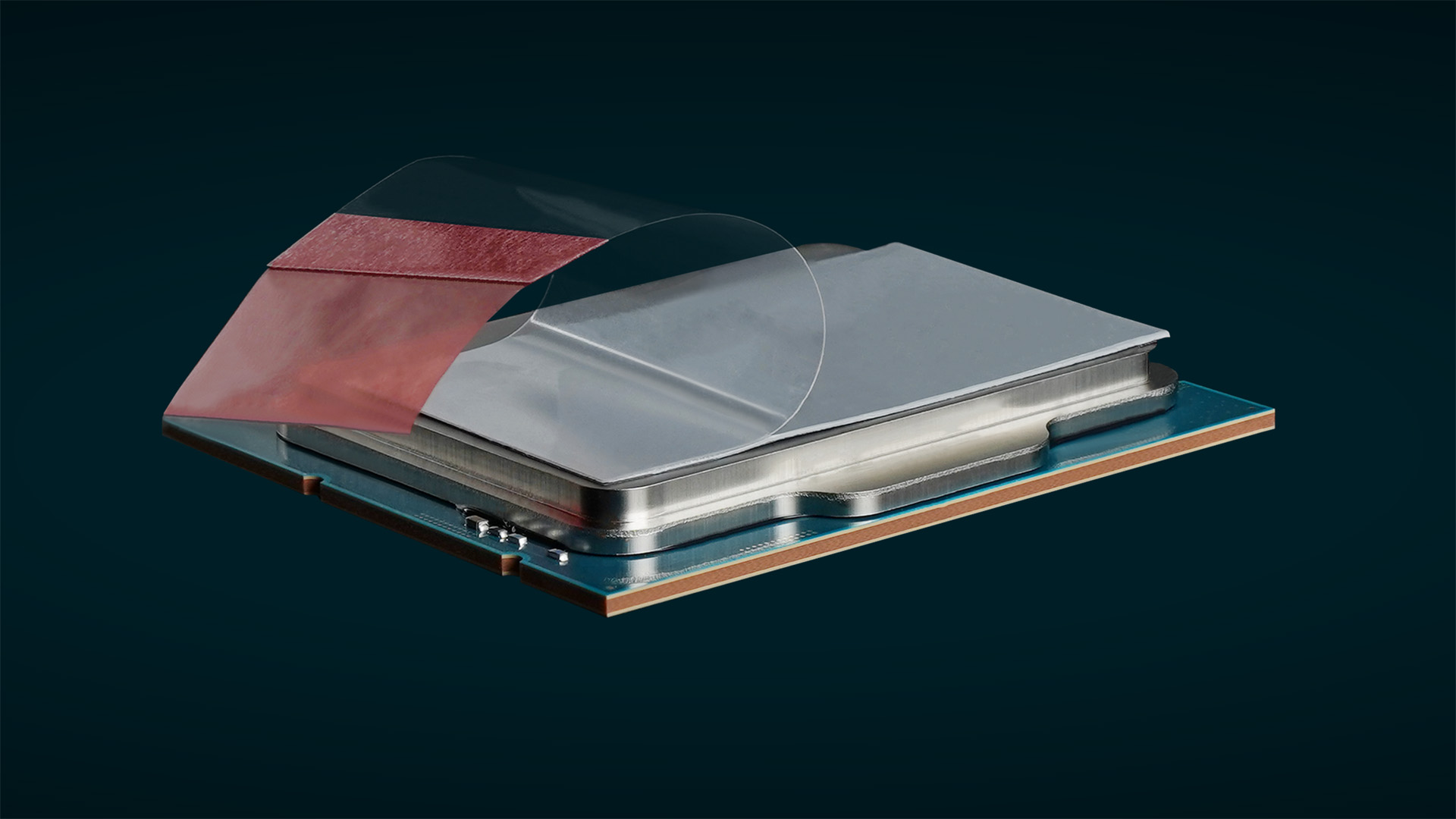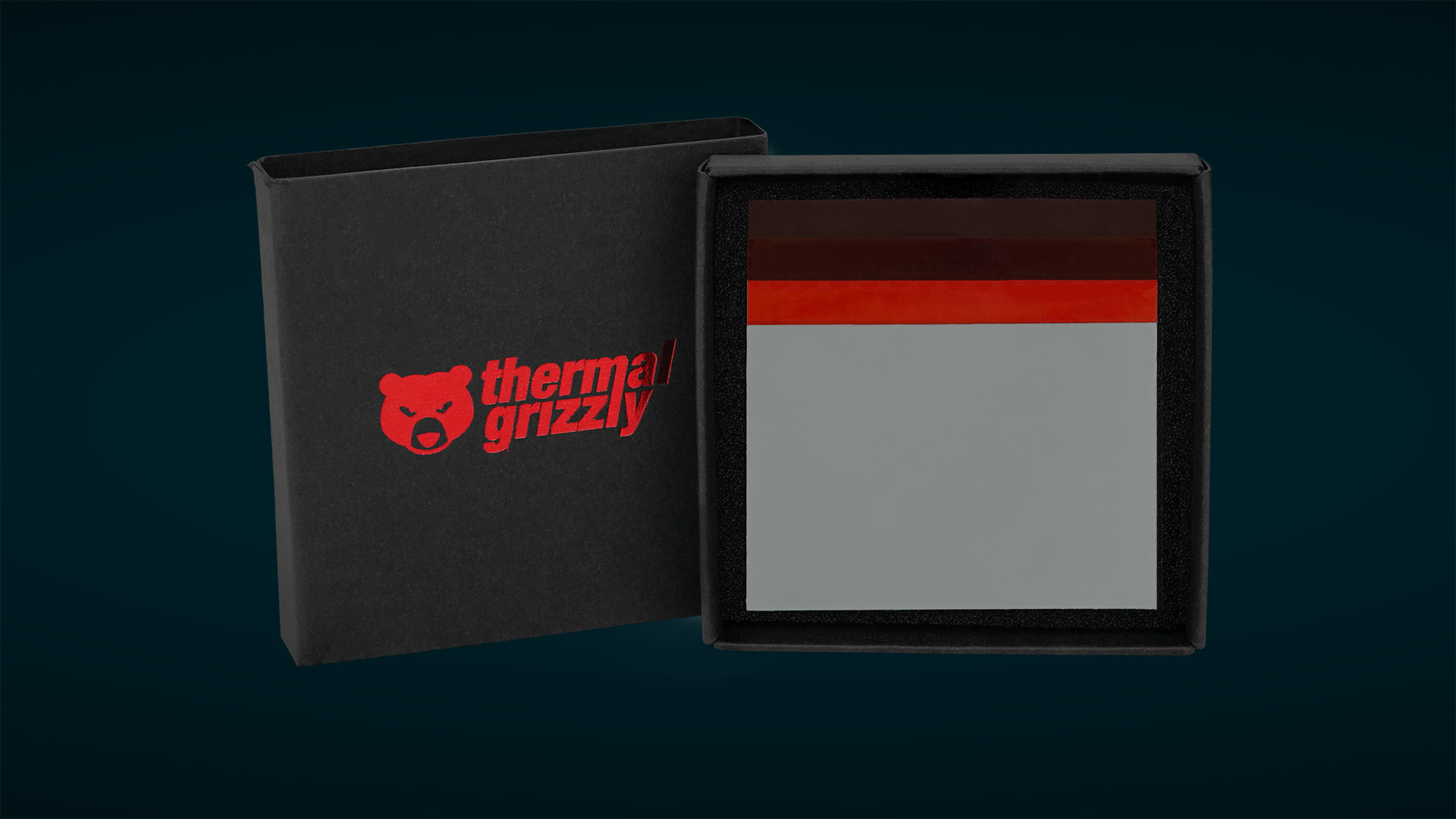Thermal Grizzly's new thermal pad has a phase-changing design — the pad changes from solid to liquid above 45C
It is also electrically non-conductive, a significant advantage over Thermal Grizzly's Carbonaut.

Thermal Grizzly has introduced a new thermal pad product for cooling CPUs and GPUs. Known as PhaseSheet PTM, the new pad uses phase-changing technology and is electrically nonconductive.
As the name implies, the new PhaseSheet PTM takes advantage of a phase-changing material that changes its physical properties depending on temperature. At room temperature, the sheet is solid (just like any ordinary thermal pad). Still, at temperatures above 113 degrees Fahrenheit (45 degrees Celsius), the thermal pad turns into a very low-viscosity liquid that behaves similarly to the thermal paste.
The phase-changing tech is designed to minimize the pump-out effects of traditional thermal paste. Pump-out is an effect where the thermal paste is slowly pressed out between a heatsink and a GPU die or CPU IHS due to micro expansions and contractions in the metal that occur in the heatsink contact plate or CPU IHS; the effect can reduce cooling performance over a lengthy period.
Thermal Grizzly's Phaseheet PTM is much less susceptible to pump-out, giving it a long service life. Additionally, the thermal pad is reusable and non-electrically conductive, so it can be used safely on components that don't have an IHS, such as mobile CPUs and GPUs. This starkly contrasts Thermal Grizzly's Kryosheet thermal pads, which are electrically conductive and can be damaged easily if re-used.
The Phaseheet PTM requires 300 to 400 newtons (67 to 90 pounds) of pressure to be used optimally with the lowest possible layer thickness (i.e., best performance). Once deployed, the thermal pad develops and stabilizes its maximum thermal conductivity after around ten cycles above 60C. Thermal Grizzly is selling one size of the Phaseheet PTM, 50 x 40mm, which costs $10.59 for one pad.
Thermal pads like PhaseSheet have several advantages over traditional thermal paste. Their solid nature makes them very easy to replace if required and enables them to last long without succumbing to pump-out losses.
Get Tom's Hardware's best news and in-depth reviews, straight to your inbox.

Aaron Klotz is a contributing writer for Tom’s Hardware, covering news related to computer hardware such as CPUs, and graphics cards.
-
hotaru251 I wonder how they compare to the Honeywell PTM7950 Phase Change Thermal Pads which has a thermal conductivity of 8.5 W/m.KReply
(thermal grizzly doesnt seem to have the specs anywhere on their page) -
TheJoker2020 Reply
Der 8auer is his YT channel name, one in German, one in English, he always does a product release video (I havent looked yet) and send it out to reviewers, so I would start there.hotaru251 said:I wonder how they compare to the Honeywell PTM7950 Phase Change Thermal Pads which has a thermal conductivity of 8.5 W/m.K
(thermal grizzly doesnt seem to have the specs anywhere on their page)
If there is no information on their web page, then perhaps someone jumped the gun and this hasn't been launched yet.! -
edzieba Reply
I'd bet it's just PTM7950 cut down from the master sheets and packaged for individual applications.hotaru251 said:I wonder how they compare to the Honeywell PTM7950 Phase Change Thermal Pads which has a thermal conductivity of 8.5 W/m.K
(thermal grizzly doesnt seem to have the specs anywhere on their page) -
bit_user Reply
This must be per unit of area, but it doesn't say. Does that mean it's for the entire sheet? I checked the datasheet and it basically says the same thing.The article said:The Phaseheet PTM requires 300 to 400 newtons (67 to 90 pounds) of pressure to be used optimally with the lowest possible layer thickness (i.e., best performance).
Heh, the datasheet has some words in untranslated German. So, it's possible someone jumped the gun on publishing it. Check out the Downloads tab, here:TheJoker2020 said:If there is no information on their web page, then perhaps someone jumped the gun and this hasn't been launched yet.!
https://www.thermal-grizzly.com/en/phasesheet-ptm/s-tg-ps -
Pierce2623 Reply
I think you’re right. They’re probably cutting PTM7950 into pieces that cost about $2 each and selling them for $11. Small third party companies in the PC niche have been doing so already but they’ve been even higher in price.edzieba said:I'd bet it's just PTM7950 cut down from the master sheets and packaged for individual applications. -
Notton AFAIK, PTM7950 is not reusable, where as the phasesheet is.Reply
I wonder if it's also easier to work with. PTM7950 is challenging and even if you are careful, it's easy to accidentally tear. -
IDisposable I think you mean that upon heating up it changes to a HIGH-viscosity liquid... otherwise it's just going to ooze out.Reply -
jayjr1105 This is just another ptm7950 clone but with a significant price bump. Just buy a sheet of PCM1 from AliExpress for $8, it performed identically to my ptm7950. Also it doesn't matter if you tear this stuff. One it liquefies it will mesh back together.Reply
